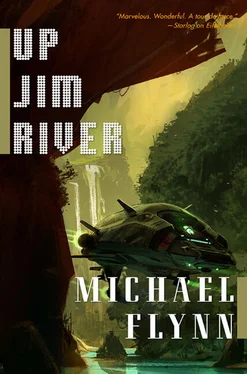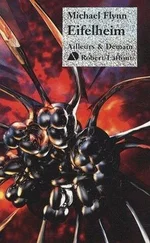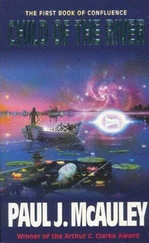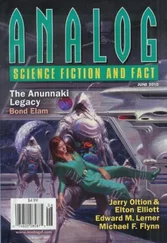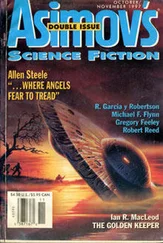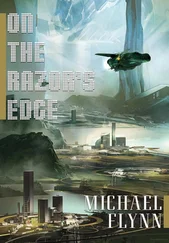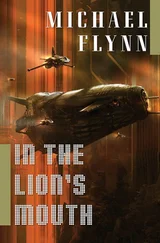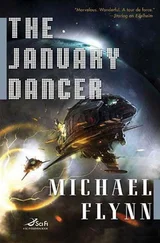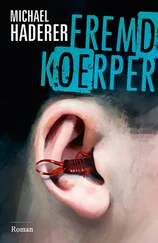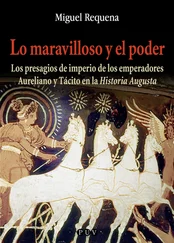How much more true for a piece of work like man! When Those had with their cold deliberation cut the form of Donovan into parts, they thereby lost Donovan, much as a water molecule, split into its constituent atoms, ceases to be water.
Darkness becomes light. The shapeless fog becomes shape. But the pieces of Donovan do not become Donovan.
Instead, they find themselves arranged as once before around the the same long, dark-wood table in the same ill-defined room, with the same ten padded chairs arranged around it. The Fudir studies the six faces, so alike in their differences. “Being unconscious,” he wisecracks, “is not like it used to be.”
Donovan scowls from the other end of the table. “Are we to endure another tiresome committee meeting? Pedant, why have you brought us here?”
The more corpulent Donovan turns its massive face toward him. The gray, watery eyes appear troubled. This is not my doing.
Perhaps , the narrow-faced Sleuth suggests, it is simply memory induced by the drug .
The Fudir wonders if it might not be imagination instead of memory. That would point to Inner Child.
«Not me!» the boy protests as he skips about the room, checking for entrances, checking for concealments. «Not me!»
Hush, Child. We’re here to discuss Méarana’s treachery .
It wasn’t her. It was Billy .
But it was clearly she who instigated it. Billy was only her instrument .
Maybe, the Brute rumbles, it was her purpose all along to lure us to the edge of the world and abandon us.
If so, can you say she had no reason?
“Leaving us here,” says Donovan, “may have saved our lives. That is reason enough.”
If a life is no longer worth living, can you call it ‘saved’? What if she never comes back?
“This is getting us nowhere,” gripes the Fudir.
“Nowhere?” Donovan laughs. “We are lying unconscious in some gods-forsaken hovel on a desolate planet, awaiting the return of people who may never return. Surely, nowhere is precisely where we’ve gotten.”
It was bound to end badly , the Sleuth comments. I always said so .
Had he? The Sleuth’s hunger for puzzles had lured him from the Bar of Jehovah against his better judgment; and now, on the edge of the Wild, his better judgment had finally won.
Something like that, drunkard .
We cannot abandon her .
Wake up, Silky. It’s her what’s abandoned us.
Inner Child yelps suddenly and runs to the Silky Voice instead. «Help me! Help me!»
From what?
The room shakes, and the Fudir grabs the edges of the table to steady himself. An earthquake on Gatmander affecting his dreams? But a shiver runs through him, too, as if he were a tree and an autumn wind were shuddering the dead leaves from him. The impression grows that he is being watched.
Something is wrong with the table’s geometry. Donovan still faces him down the long axis of the table, but the perspectives have all gone awry, for the empty seat is also at the far end facing him and it is not so empty a seat as before. Something inhabits it now; something remnant of the chaos. Perhaps it is man-shaped, perhaps not. There is too much shadow in it to say for sure. In a better light, it might have a face, and the Fudir is suddenly, irrationally glad that the light is not better.
“Donovan, in the seat on your right…”
But Donovan shakes his head. “No, on your right.”
“Pedant? This is no time for jokes.”
What I see sits to the Sleuth’s right, at the far end of the table. Perhaps it is some poor deduction he has made.
Or a bad memory that sits beside you , the Sleuth shoots back. But Silky sees it beside the Brute; and the Brute sees it beside Silky. All of them, likewise, at opposite ends of the table’s long axis. Inner Child, of course, sees it everywhere.
If time ceases, you live forever.
Nervous laughter. By definition, I would think .
“Quiet, Sleuth! Who spoke? Who are you?”
Namaste. Greet the God within.
“Oh, no, you don’t,” the Fudir says. “No, you don’t. Not that old trick.”
Death is the life that never ends.
That’s nonsense. Death is the end of life .
«Make it go away!» The child-Donovan hops onto the Silky Voice’s lap and hugs her tight.
Death is non-sense, for in death the senses are not. Change brings pain, and life is change. In death there is no change, and so, no pain.
What are you trying to tell us?
“He can’t tell us anything, you hair-splitting fool.” The Fudir’s voice is just short of breaking. “He’s only some leftover part of us, no less foolish than any of us.”
Which path should we follow? Do we abandon Méarana? Or do we persuade her to abandon her search? Do we fly to the Hounds, or flee from them?
“It’s no Oracle, Pedant! Donovan, do something!”
Take any path. You cannot avoid what lies at the end.
«But which path is the longest to reach it? We can dawdle, if we must.»
Dawdle all you like. In the vastness of time, the longest life is no more than a speck. It is no more significant than a single man in the vastness of the universe. Your youth is dead already. There is rest at the end, a surcease from striving, relief from the Wheel.
“Donovan! The table!”
The seats are receding like galaxies from one another as the table seems to swell. Donovan, Brute, Sleuth, and the rest are red-shifting. The Fudir knows what this must symbolize. His mind is flying apart. He hears laughter like the crackling of dried autumn leaves. Brute to his left, Sleuth to his right are already out of reach, but he lunges forward and stretches his arms and…
…and his hand encounters a pile of jackstraws in the middle of a light game table. He is the only one sitting at it. The jackstraws, multicolored on their tips, are all a-jumble. The Fudir hesitates and reaches out as delicately as if he were picking a pocket and lifts a bright red staw from the top of the pile. He holds it a moment aloft and waits to see if the pile shifts.
It does not and he smiles and pulls a second straw out. This one is green at the tips and it must be slipped from under two other straws lying atop it. His hands do not tremble; the straws do not shift; and he lays the straw aside with a sense of quiet satisfaction.
A half-dozen jackstraws he has removed without rustling the pile when the tabletop suddenly grows reflective, doubling the number of apparent straws. It is difficult, from his angle, to distinguish the real straws from their reflections.
“That isn’t quite fair,” he says to no one in particular. He stretches out his hand and…
* * *
…and the Sleuth picks up one more piece of the jigsaw puzzle from the pile on the table. For a moment, he feels concern that he has disturbed the pile and the pieces have slipped and slid. But that is of no concern in assembling a puzzle, and so he dismisses the fancy. The border is well-nigh complete and he searches for the place where this latest piece will fit. He wonders what the picture will be once it is complete, and tries to anticipate the whole from the hints emerging on the edges. Trees, perhaps. A brook or river. A pastoral scene? He works without a picture. What joy if the solution be known beforehand?
The colors on the pieces fade until all are a uniform gray. That isn’t quite fai , he mutters. Though it does increase the challenge. He reaches out his hand and…
…and Donovan adjusts the position of a councilor. “Dzhadoob,” he announces, then sits back to examine his position. Red to mate in twenty-five moves. Somehow, he knows that, but he does not wonder how he knows it.
Читать дальше
